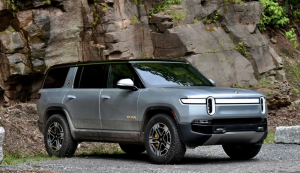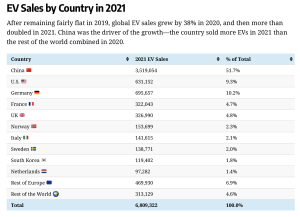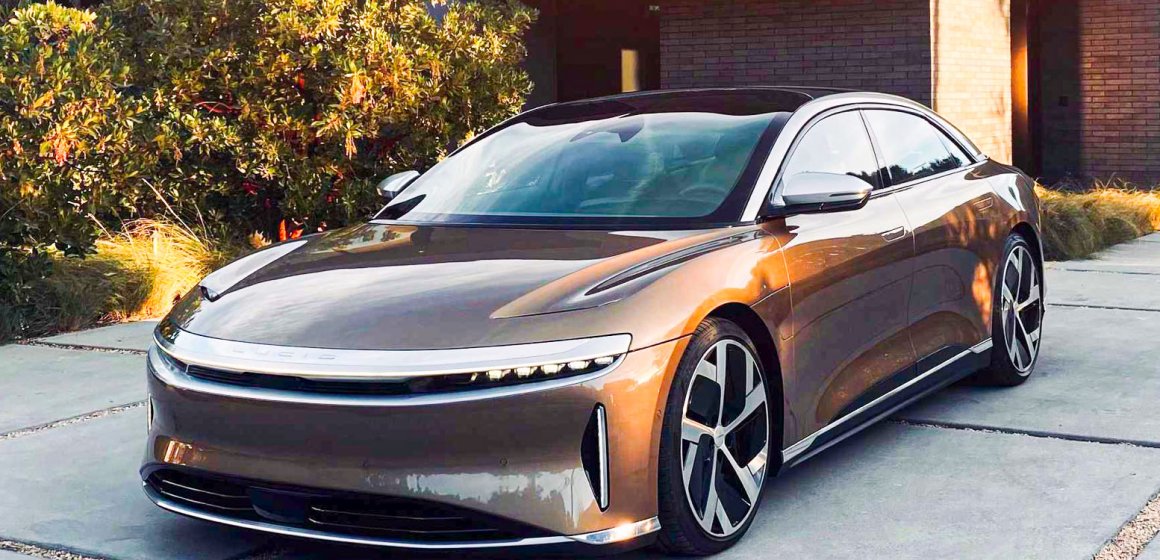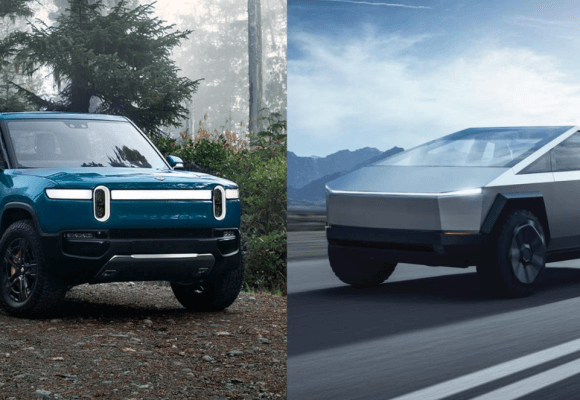|
LISTEN TO THIS THE AFRICANA VOICE ARTICLE NOW
Getting your Trinity Audio player ready...
|
With more players joining the Electric Vehicle (EV) market, EVs have become increasingly accessible and familiar in many states.
In recent years, people have become more conscious of their carbon footprint and the environmental impact of transportation. Owning a Tesla, Rivian or Lucid is becoming a dream for many motorists. Not to be left behind, legacy car makers, Ford, Volkswagen, GMC, Nissan and Toyota just to name a few, are joining the party. But most are taking the slow road, choosing to go hybrid than full electric.
Even though it’s possible to deduce the difference between EVs and hybrid cars from their classification, it’s important to be clear. A hybrid vehicle combines an internal Combustion Engine (ICE) and an electric motor, while an EV runs solely on electric power. Additionally, a hybrid vehicle does not need to be charged, as it generates electricity through regenerative braking and from the ICE. An EV, however, needs to be charged at a charging station or at home, and the range is limited by the battery capacity.
In this article, we’ll focus on EVs.
There are several factors consumers should consider before purchasing an EV to ensure that they make an informed decision. We’ll name just a few basic factors. Of course there are many other considerations, so this article should not be viewed as final, but a start of your research toward owning a sleek EV.
Range:
One of the most important factors to consider before purchasing an EV is its range or the distance it can travel on a single charge. While many modern EVs have a range of over 200 miles, it is essential to consider your daily driving habits and ensure that the EV’s battery range is sufficient for your needs.
Charging infrastructure:
Another important factor to consider is the availability of charging infrastructure in your area. Unlike gasoline-powered vehicles, EVs require charging stations, and it is important to ensure that there are sufficient charging stations in your area to meet your needs. It is also important to consider the time it takes to charge the vehicle, as some EVs take longer to charge than others.
Cost:
The cost of EVs is often higher than that of gasoline-powered vehicles, and it is important to consider the long-term financial impact of the purchase. However, it is important to keep in mind that EVs often have lower operating costs than gasoline-powered vehicles, as electricity is generally cheaper than gasoline.
Maintenance:
EVs often have lower maintenance costs than gasoline-powered vehicles, as they have fewer moving parts and require less maintenance. However, it is important to consider the cost of replacing the battery, which can be expensive.
Environmental impact:

It’s important to consider the environmental impact of the vehicle. EVs produce zero emissions, making them a more environmentally friendly choice than gasoline-powered vehicles. However, it is vital to consider the environmental impact of producing the electricity used to charge the car, which may come from non-renewable sources.
There are several factors to consider when considering the long-term financial impact of EVs compared to gasoline-powered vehicles.
While EVs often have a higher upfront cost, they generally have lower operating costs, as electricity is cheaper than gasoline. According to a study by Consumer Reports, the average EV owner can save over $6,000 in operating costs over five years compared to the average gasoline-powered vehicle.
Additionally, EVs often have lower maintenance costs than gasoline-powered vehicles, as they require less maintenance and have fewer moving parts. However, replacing the battery in an EV can be expensive, and it is essential to factor this into the long-term financial impact of the purchase.
Which Countries have the Most EVs?

As of 2021, China has the most extensive adoption of electric vehicles (EVs) globally, with over 4 million EVs on its roads. The Chinese government has implemented several policies and incentives to encourage EV adoption, including subsidies, tax breaks, and a mandate for automakers to produce a certain percentage of new energy vehicles, including EVs, each year.
It’s not a surprise, therefore, to note that Chinahas almost 300 EV vehicle models for its citizens to choose from, a wide selection that has made the cost of EVs in China lower than in other parts of the world.
According toElements Visual Capital Website, China is also home to 4 out of 10 of the largest battery companies in the world.
Other countries with significant EV adoption include the United States, with over 1 million EVs on the road, and Europe, where several countries have set ambitious targets for phasing out gasoline and diesel vehicles and transitioning to EVs.
Norway has the world’s highest per capita adoption of EVs, with over 70% of new car sales being EVs in 2020.
As more countries worldwide aim to reduce greenhouse gas emissions and combat climate change, the adoption of EVs is expected to continue to grow, with many governments implementing policies and incentives to encourage the transition to electric mobility.
What about Africa?
Africa is a relatively small EV market, with low adoption rates compared to other regions such as Europe, North America, and Asia.
There are signs of growth in the African EV market. Several African countries, including South Africa, Morocco, and Egypt, have set targets for EV adoption and are implementing policies and incentives to encourage their use.
Rwanda has embraced the EV space and set an ambitious goal of having 100 percent of its motorbikes and 30 percent of its buses and cars run on electricity by 2024.
The Rwandan government aims to save millions by implementing a robust EV policy through its Green Growth and Climate Resilience Strategy (GGCRS). According to government estimates, transitioning to e-mobility and adopting electric vehicles will cost Rwanda US $900 million. However, transitioning to electric motorcycles alone, an essential mode of transport, would save the Rwandan economy US $22 million in fuel imports annually.
The country is offering attractive incentives to EV buyers, outlined in aplan published in February 2022 to fast-track EV adoption.
Some startups, such as Nigeria’s Metro Africa Xpress (MAX), are also emerging in Africa and are focusing on developing EVs and related infrastructure to make them more accessible to consumers.




























LEAVE A COMMENT
You must be logged in to post a comment.